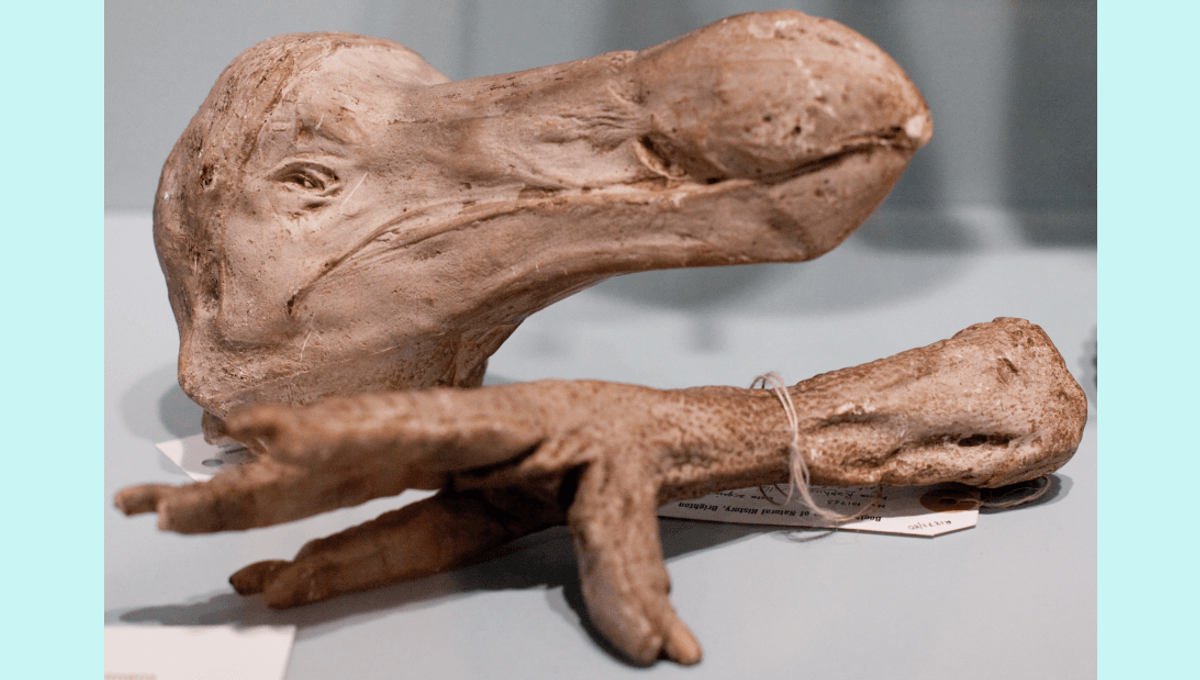
Have you heard that dodo meat tasted foul? Loathsome, even. You’re not alone. It’s a strangely prevalent rumor, given that nobody alive today has ever eaten one. However, it’s quite possible that this “fact” is one that got lost in translation.
Known to science as Raphus cucullatus, dodos also went by the nickname “wallowbird”, said to have been inspired by the way their meat made people sick. But as Jan den Hengst, author of The Dodo: The Bird That Drew the Short Straw, wrote in a 2009 study, this dodo meat review may have been misunderstood.
In “The Dodo And Scientific Fantasies: Durable Myths Of A Tough Bird”, Hengst explores primary Dutch sources dating from 1598 to 1602 to see how people were really reviewing dodo meat. The accounts encompass sailors, merchants, and captains who encountered dodos when visiting their native home of Mauritius.
The terms “lothsome” and “fulsome” have historically been used as evidence that dodo meat tasted unpleasant, but as Hengst uncovers, these trace back to an English translation – not the original source. It was inspired by the Dutch phrase de walgch (“the heaves”), which Hengst says more accurately reflects nausea from either eating too much of something, or something that’s tough. Not because it was disgusting.
A translation included in the study that supports this comes from a 1601 second edition of Admiral Jacob Corneliszoon van Neck’s report, A true report of the gainefull, prosperous and speedy voiage to lava…. In it, he writes:
“These birds we called Wallowbirds, on the one hand because, even though we cooked them for a long time, they were very tough to eat, although the breast and the stomach were very good and, on the other, we were able to catch large numbers of turtle doves, which we found to be much more pleasant in taste. The crew became sick from eating the dodo.”
If dodo meat really were so disgusting, it seems unlikely the crews would be going to much effort to catch and kill them. The reports also chronicle how sailors would salt down leftover dodo meat so it could be consumed in transit. Again, not something you’re likely to do with a foodstuff that’s gross.
It could be that the mixed reviews surrounding dodo meat come down to a catch that arises when eating many kinds of poultry: the older the bird, the tougher the meat. Dodos enjoyed no predators until humans came along, so there were birds marching around that would’ve been very old. It’s possible, then, that the negative reviews were coming from people eating dodos that were past their prime.
“Thus although later writers made no mention of an unpleasant taste, this culinary quality still took on a life of its own, particularly because of the addition of the two English words ‘lothsome’ and ‘fulsome’,” wrote Hengst. “In fact, if anyone had had an unpleasant experience when consuming a dodo drumstick, the bird would subsequently have been freed from the dangers of the hunt.”
Chance would be a fine thing for our poor extinct dodo. Today, it’s known from just a handful of specimens, most of which are just pieces. Still, we may see a dodo-like bird in the years to come as de-extinction marches on, but is de-extinction possible? It’s an interesting question.
Source Link: What Did Dodo Meat Taste Like? Probably Better Than You’ve Been Led To Believe